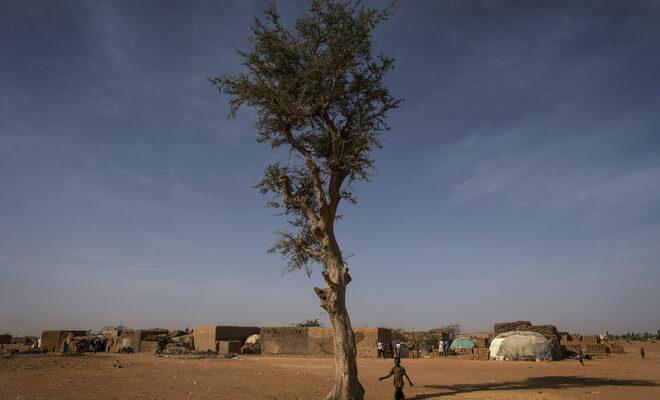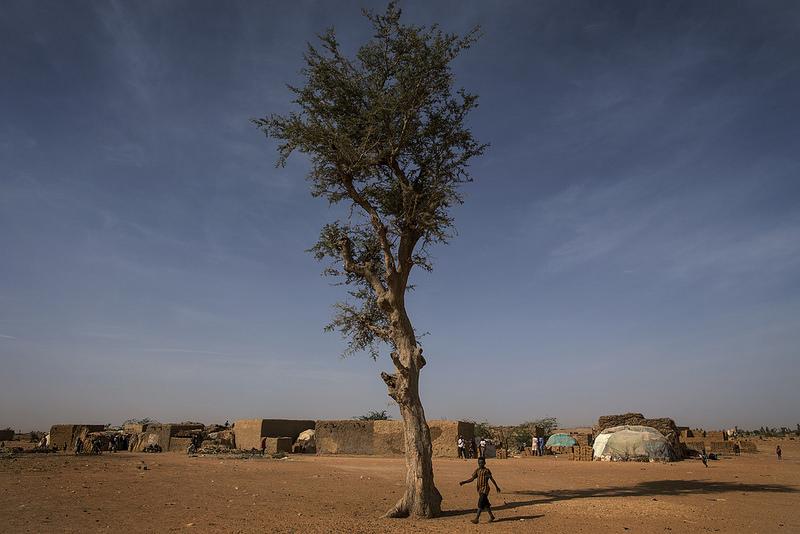Insiders Insight: Explaining the Mali massacre


In central Mali. Credit: UN Photo/Marco Dormino.
African Arguments is and always will be freely-accessible to everyone.
But we also have a separate spin-off product called the Africa Insiders Newsletter. It consists of weekly emails with additional snappy insights on topics such as elections, conflict, health and more. It’s for those who want a bit extra and comes with a small subscription fee: $10/month ($15 if you want to be a generous “Patron”) or $100/year ($150 for Patrons). If you’re a student or have otherwise limited income, you can get a subscription for as little as 2/month or $20/year.
Our anniversary discount (30% off) is still running, but only for this week.
Click here to SUBSCRIBE.
Table of contents:
- The follow-up
- Emerging from Idai
- What everyone is talking about/Conflict Focus
- Mali on the brink of ethnic cleansing?
- Health Corner
- Decolonising global health
- Report of the Week
- The Nile: Source of life and conflict.
- What else?
Free segment: What everyone is talking about
Explaining the Mali massacre
The essentials: At least 134 Fulani people, among them many women, children and elderly people, were killed in an attack by a Dogon ethnic militia in central Mali. The attack is one of the worst atrocities ever committed in Mali’s long history of internal conflict and marks an unprecedented escalation of violence against civilians, six years into an international intervention to stabilise the country.
#Mali: We should call it ethnic cleansing against the Fulani, Dozos are the perpetrators, the Malian state is complicit, jihadis have contributed to this situation, #France sits idly by, #UN plays doctor, the international community and actors in the region are tiptoeing
— MENASTREAM (@MENASTREAM) March 23, 2019
The context: In an apparent reprisal attack after an Al-Qaeda-affiliated group killed 23 Malian soldiers, members of the Dan Nan Ambassagou militia surrounded the Fulani villages of Ogossagou and Welingara in central Mali and began killing inhabitants indiscriminately.
Conflicts and violence between Fulani, who rear and herd much of West Africa’s livestock, and other communities organised around farming have become common not only in Mali. Competition over grazing corridors and water have been exacerbated by the effects of climate change, land degradation and population growth. It is now stretching traditional conflict resolution mechanisms to breaking point. Governments and security forces, who frequently eye Fulani communities with suspicion due to their high mobility, have been unable and often unwilling to compensate this breakdown of inter-communal relations through increased investment and presence.
Islamist groups are seeking to benefit from these widening cracks in the social fabric by presenting themselves as the guardians of overwhelmingly Muslim Fulani communities. Even though only a fraction of all Fulani are actively supporting such groups, this propaganda has succeeded in associating whole communities with these violent actors, further escalating the circle of violence.
The good: Nothing about such an event can be described as “good”, but it is hoped the tragedy will force all actors to take the situation more seriously. As some commentators pointed out, this massacre is as bad or worse than anything any Islamist group ever committed in Mali. While the government, the Malian army and the international forces led by France were quite happy to ignore the complex inter-communal dimension of violence in Mali and concentrate exclusively on the threat posed by Islamist groups, this is now not an option anymore.
The Malian president has already fired the military’s chief of staff and the chief of land forces, as well as other officers, who had tolerated and promoted coordination and cooperation between security forces and militias like Dan Nan Ambassagou. Of course President Keita, who has led a rather anaemic administration, will have to ask himself some hard questions as well about his own performance in the face of escalating violence.
The bad: Large parts of the Sahel region are experiencing a worsening security environment and escalating violence between security forces, ethnic militias and radical Islamists, with civilians increasingly becoming the favourite punching bag of all these groups. The presence of international forces is substantial and second in capability and scale only to that in Afghanistan. But the obsession of the international community with combating religious terrorism at the expense of addressing fundamental societal and economic problems have arguably made international forces part of the problem, rather than the solution.
The future: Any change to the current dynamics would probably necessitate serious commitments on the part of governments especially in Mali and Burkina Faso. They would have to curb abuses by their security forces and disarm and demobilise local militias while simultaneously building the presence of the state and investing in infrastructure and social safety nets in marginalised areas. This would have to be supported and demanded by the international community, who would have to reassess their current focus on military means.
- At least 134 Fulani herders killed in central Mali’s worst violence yet (Reuters)
- As peace efforts falter, violence in central Mali spirals further out of control (The New Humanitarian)
- Mali president sacks generals after deadly raids on ethnic villages (Deutsche Welle)
- Dans le village peul attaqué au Mali : « Ils ont tout brûlé et tué tout ce qui bougeait encore » (Le Monde)
- Massacre de plus de 130 civils peuls à Ogossagou : le Mali sous le choc (Jeune Afrique)
- Islamist Insurgencies Feed Age-Old West African Conflicts (Bloomberg)
- Report on similar dynamics in Burkina Faso: “We Found Their Bodies Later That Day” (Human Rights Watch)
Discuss with @PeterDoerrie on Twitter
The Africa Insiders’ Newsletter is a collaboration between AfricanArguments.org and @PeterDoerrie, with contributions from @_andrew_green and assistance from Stella Nantongo. Part of the subscription revenue is funding in-depth and freely accessible reporting and analysis on African Arguments.



